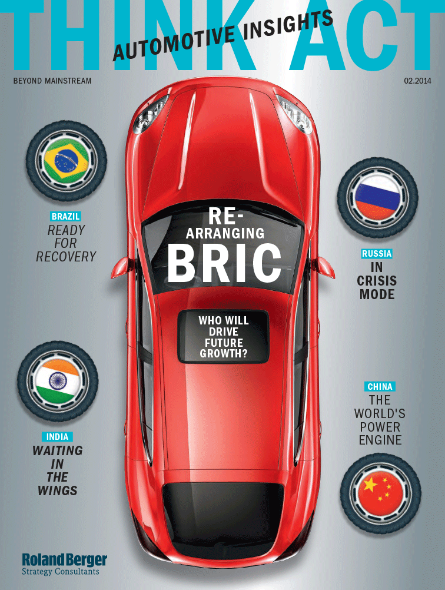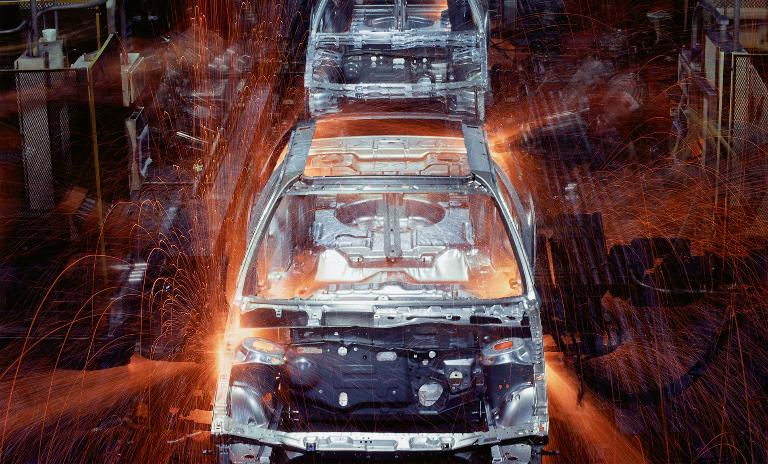Automotive Insights 2/2014: Re-arranging BRIC
![{[downloads[language].preview]}](https://www.rolandberger.com/publications/publication_image/cover_acc2014bric_download_preview.png)
Until a few months ago, the BRIC auto markets seemed unstoppable. But as 2014 is drawing to an end, the euphoria appears to be well and truly over.


It seemed unstoppable: four countries with growing economies manufactured vehicles at a high rate, marketed them to specific consumer groups, and it was a recipe for continued success. Yet, unforeseeable events have occurred, unwise partnerships have been formed, and costs of labor and material are always on the rise. After their initial boom and projections of expected growth, BRIC automotive manufacturers are now facing setbacks. However, they can recover and regain momentum. The question is only which path to take.
Coupling industry expert opinions with an analysis of the current market, our study examines the successes and the setbacks, as well as outlining potential plans of action. Each industry expert we spoke with identified government support as a key to improvement, whether in the form of investment in infrastructure, access to raw materials, or production incentives. In countries where political instability has become the norm, this can seem impossible; however, many of these industries have benefitted from foreign investors. Each country holds a long-term goal of competing on a global scale, but names several domestic obstacles that must be surmounted before this is possible.
While growth in Brazil stagnates, China continues to grow amidst competition from joint ventures. Russia, which saw significant growth in the SUV market and was expected to become the largest automotive market in Europe, has faced rising production costs and a volatile market as well as risks to local production. India has no notable issues with manufacturing or moving large volumes, but these successes come at the cost of profit. While these countries may share common goals—becoming more competitive and entering the global market—the obstacles they face remain unique to each of them, a reflection of their own local situations.

Furthermore, new regions are developing their industries and these future markets merit examination. While these newcomers will not be the focus of coming years, taking a look at their supply chains, structural costs, and consumers could benefit the way we approach other markets and globalization. There is no one-size-fits-all solution for the BRIC manufacturers—tailor-made strategies will have to be developed and implemented with the individual needs of these markets in mind.

![{[downloads[language].preview]}](https://www.rolandberger.com/publications/publication_image/cover_acc2014bric_download_preview.png)
Until a few months ago, the BRIC auto markets seemed unstoppable. But as 2014 is drawing to an end, the euphoria appears to be well and truly over.